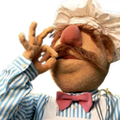Or: "Timekeeping is a fuck and this shit is convoluted"
Preface: There are 3 types of calendars. Solar (like the Gregorian calendar), Lunar (like the Islamic calendar) and Lunisolar (like the Hebrew calendar).
"The Korean lunisolar calendar, like most other East Asian calendars such as those of Japan, Mongolia, Vietnam, among others, are all derived from historical variants of Chinese ones such as the Shixian calendar of the Ming dynasty."
I'm not a die hard about calling it "Chinese New Year" despite TET in Vietnam and Seollal in Korea both being derived from the Chinese calendar, among others. They have adapted their own customs and traditions to it. Calling the celebration "Chinese New Year" is not the most accurate. I am of a mind to call it what matters to you, you don't have to translate it. Ramadan is Ramadan, no need to translate it to "Scorching Heat", Hanukkah is Hanukkah, no need to translate it to "Dedication".
However, to call it "Lunar New Year" implies it's the definitive lunar calendar, which erases other civilizations' timekeeping traditions. There are multiple lunar calendars with their own lunar new years such as Ugadi in India, Hijri in Muslim countries and the Tamil calendar as well.
Not to mention the Chinese calendar is actually lunisolar and not solely lunar, incorporating both solar and lunar timekeeping, so "Lunar New Year" is half accurate at best. Switching to calling it "Lunisolar New Year" also runs into similar issues, the Thai calendar is lunisolar (but Songkran/Thai New Year is in April) as is the Hebrew calendar (Rosh Hashanah/Hebrew New Year is in Sept-Oct)
In China, using {农历|nónglì}/agricultural calendar (due to its historical significance in relation to farming) or {旧历|jiùlì}/old calendar to refer to the Chinese calendar are the most accurate whereas {阴历|yīnlì}/lunar calendar and {阳历|yánglì}/solar calendar being common vernacular despite being technically incorrect.
Just call it {春节|chūnjíe}/Spring Festival or {新年|xīnnián}/New Year, it's the most common terms ({元旦|yuándàn} is the most common way of referring to the Gregorian new year in China itself.) It really doesn't matter that much to us. The term "Chinese New Year" is rarely used in China and was probably a term used by Chinese immigrants for the benefit of Westerners.
Tl;Dr "Lunar New Year" is well meaning but incorrect, erases other lunar calenders and recently has been used maliciously.
